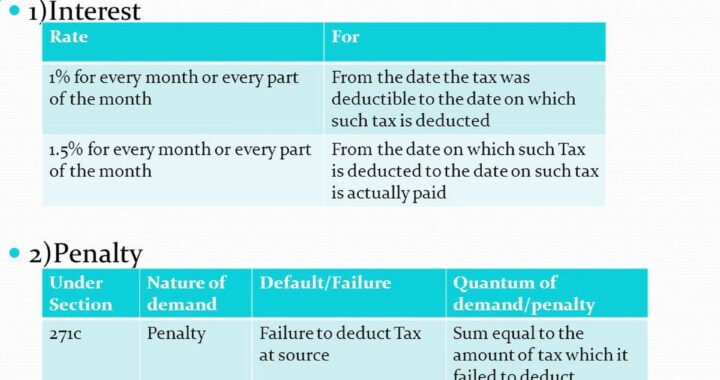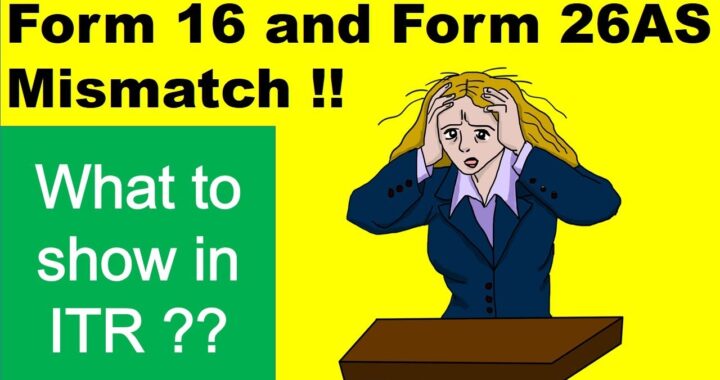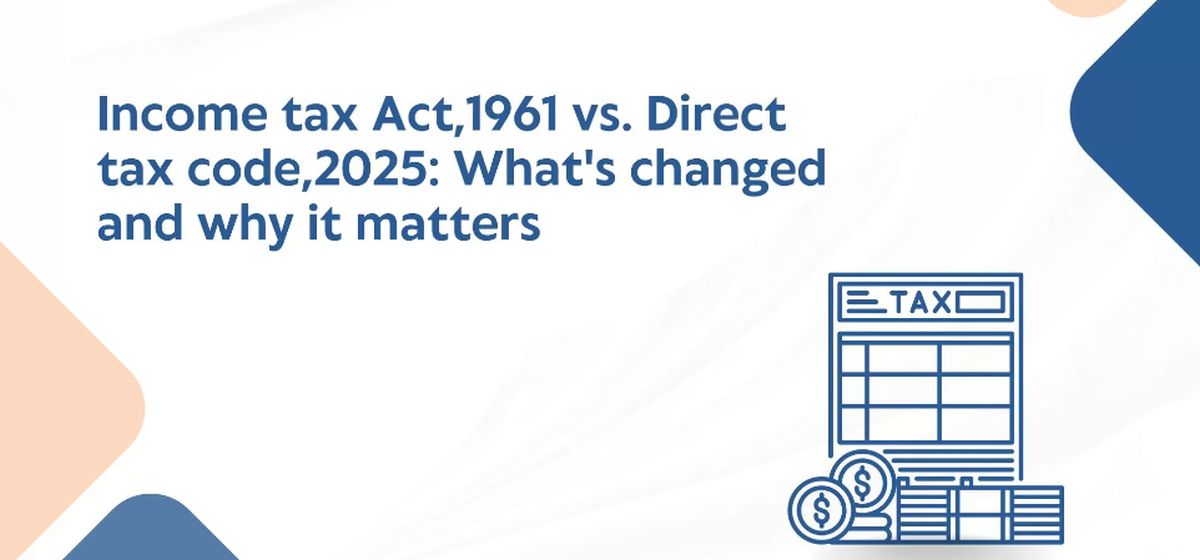Can a Tribunal stay a proceeding beyond a period of 365 days as prescribed in the Act?
 The Hon’ble Delhi High Court in the case of Pepsi Foods Private Limited vs. ACIT, W.P. (C) 1334/2015, and W.P. (C) 4280/2014 by a judgment dated 19.05.2015 has held that where the constitutional validity of Section 254(2A) of the Income Tax Act, 1961 has been challenged, the Tribunal can extend the period of stay beyond 365 days from the grant of stay even if there is a delay in disposing off the appeal of the assessee.
The Hon’ble Delhi High Court in the case of Pepsi Foods Private Limited vs. ACIT, W.P. (C) 1334/2015, and W.P. (C) 4280/2014 by a judgment dated 19.05.2015 has held that where the constitutional validity of Section 254(2A) of the Income Tax Act, 1961 has been challenged, the Tribunal can extend the period of stay beyond 365 days from the grant of stay even if there is a delay in disposing off the appeal of the assessee.
Facts involved in the case:
Both the writ petitions were taken up together as they involved a common issue. The petitioners challenged the constitutional validity of the third proviso to Section 254(2A) of the Income Tax Act, 1961 introduced by virtue of the Finance Act, 2008. An alternative prayer was also made to provide that the power of the Tribunal to grant interim order is co-extensive with the power of disposal of the appeal as stated in Section 254(1) of the Act.
In each of the writ petitions stay was granted by the Tribunal as an interim relief. But, when the period of 365 days from the grant of initial stay passed, as per the provisions of Section 254(2A) of the Act, the Tribunal cannot grant any further stay even if the appeals preferred by the petitioners are pending. The delay in the disposal of the appeals is also due to the conduct of the petitioners.
The Hon’ble Delhi High Court stated that the petitioners were right in their submission that the equal treatment of unequal one should be void. Assessees who having obtained stay orders in their favour are causing willful delay in proceeding their appeals, have been treated equally with assessees who have not delayed their appeal proceedings.
The two categories of assessees are different and cannot be treated in the same manner. This has led to discrimination against the class of assessees who are not responsible for the delay.
The law in India provides that appeals should be heard as soon as possible and there should not be any misuse of the stay orders passed in their favour by delay.
The Court finally passed the judgment in favour of the assessee and allowed the appeal. The Tribunal was thereby allowed to stay a proceeding beyond the period of 365 days as prescribed in the Act.
Arguments on behalf of the petitioners:
The petitioner contended that the aforesaid provision makes a classification which has no link with the object of the amendment. It merges two classes of assessee into a single one, i.e., the assesses to whom the delay can be attributed and those to whom such delay cannot be attributed. This result in discrimination against the law abiding assesses who are not responsible for any delay in hearing their appeals. This violates Article 14 of the Constitution of India which deals with the nondiscrimination clause.
It was also contended by the petitioners that the right of appeal cannot be inherent, but if it is granted, it has to be construed to provide the remedies. It was further argued that the right to obtain a stay was the integral part of an appeal and the introduction of the proviso by means of the amendment has made the right of appeal arbitrary and contrary to Article 14 of the Constitution of India. As such, the amendment by the Finance Act, 2008 should be struck down as the same was invalid.
Decisions referred by the petitioners:
The learned counsel for the petitioners referred to following decisions among others to support their contentions:
ITO vs. M. K. Mohammed Kunhi, reported in 71 ITR 815 (SC);
1. Wire Netting Store, Delhi and Another vs. Regional Provident Fund Commissioner and Others, reported in (1984) 1 ILR 76 (Delhi) (DB);
2. Mardia Chemicals Limited and Others vs. Union of India and Another, reported in (2004) 4 SCC 311;
3. Narang Overseas Private Limited v. Income Tax Appellate Tribunal, reported in (2007)295 ITR 22 (Bombay) (DB);
Arguments made by the respondent:
The learned counsel for the Revenue contended that there was nothing arbitrary about the amendment introduced by means of the Finance Act, 2008 regarding clarification of the legislative intent of the proviso. The third proviso to Section 254(2A) of the Act was clarified by virtue of the amendment. It was contended that the said provision does not make any kind of discrimination.
The learned counsel for the Revenue also contended that the intention behind the amendment was to clarify that the period of stay cannot be extended beyond 365 days for any reason.
The decision passed in Maruti Suzuki (India) Limited (supra) and that of the Bombay High Court in the case of Jethmal Faujimal Soni vs. ITAT as reported in (2011) 333 ITR 96 were referred wherein it was held that the Tribunal if possible, may decide the appeal within four years from the end of the financial year in which it was filed.
The judgment with reasons:
It was held by the Hon’ ble Delhi High Court that Grant of stay by the Tribunal is not a matter of right, but stay is allowed on the basis of prima facie observation on merits.
In the cases, if there is an error by the tribunal in granting stay, the Revenue can approach the High Court according to law.
It was held that, the petitioners were correct in their submission that unequals were treated equally. Assessees having obtained stay orders by their conduct have delayed the appeal proceedings. However they have been treated in the same manner in which assessees who have not delayed the appeal proceedings. The two classes of assessees should not be clubbed together. This clubbing has resulted in discrimination against the assessees who are not responsible for the delay.
It was observed that the object that appeals should be heard expeditiously and that assesses should not misuse their stay orders by delaying the proceedings is not achieved by the provision.
On the contrary, it violates Article 14 of the Constitution. As such, the expression introduced by the Finance Act, 2008 should be struck down.
It was held that where the delay in disposing of the appeal is not due to the conduct of the assessee, the Tribunal has the power to grant stay beyond 365 days in cases which have merit.
Accordingly both the writ petitions were allowed. The petitioners were at liberty to approach the Tribunal for extension of stay till the interim orders shall continue.

 Can an assessee pay House Rent to his parents and claim relief? Would there be any legal complications?
Can an assessee pay House Rent to his parents and claim relief? Would there be any legal complications?  Boost Your Business & Reduce Taxes: A Guide to Maximizing Benefits Under Section 80JJAA
Boost Your Business & Reduce Taxes: A Guide to Maximizing Benefits Under Section 80JJAA  What is remedy to taxpayer if the Tax deductor fails to deposit the TDS or fails to file TDS Return
What is remedy to taxpayer if the Tax deductor fails to deposit the TDS or fails to file TDS Return  What is Income Tax Liability on Income from trading in Future and Options
What is Income Tax Liability on Income from trading in Future and Options  The Importance of Filing Your Income Tax Return on Time: A Financial Must-Do
The Importance of Filing Your Income Tax Return on Time: A Financial Must-Do  Is Addition made by Assessing officer on basis of mismatch between AIR and F26AS Justified
Is Addition made by Assessing officer on basis of mismatch between AIR and F26AS Justified  Major Changes Expected in Direct Tax Code 2025 and why these matter
Major Changes Expected in Direct Tax Code 2025 and why these matter